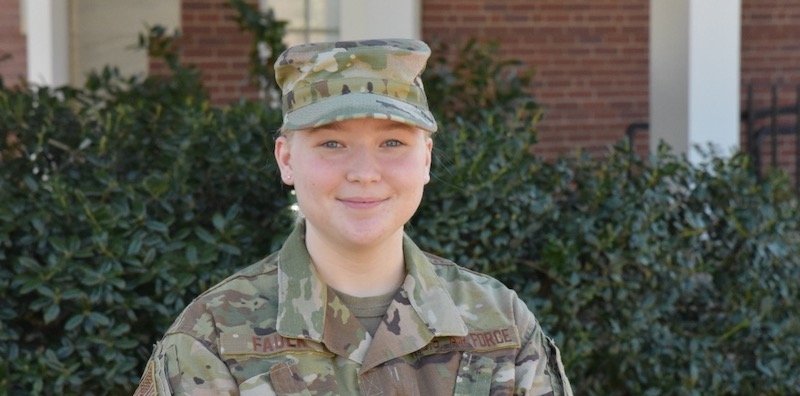21
May
2021
/
/
Military REACH Project Manager
Killian Faulk is an intern with Military REACH and became interested
in our project because she is an Air Force ROTC cadet and is obtaining
her degree in Human Development and Family Science (HDFS).
When I met Killian, I could tell she was eager to find a way to merge
her two worlds of the military and HDFS, so REACH was a natural fit!
Killian has been an asset to our team, and her teammates describe her
as positive, hard-working, receptive to feedback, and responsible – all
of which are incredibly valuable traits. Because of Killian’s upbringing,
career field, and degree, she offers a unique perspective to each of the
tasks she works on and continually provides our team with valuable insight
into military life (e.g., rewards and challenges of growing up in a National
Guard family, how current policies affect ROTC cadets). Continue reading to
learn more about Killian, specifically the deciding factor for her to join the
Armed Forces, what it’s like to be a Military REACH intern, and more!

